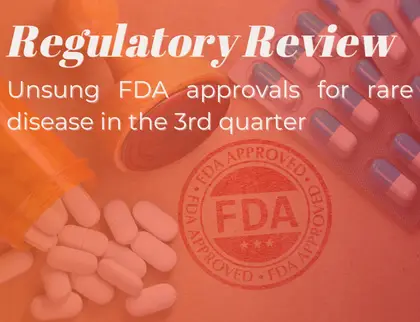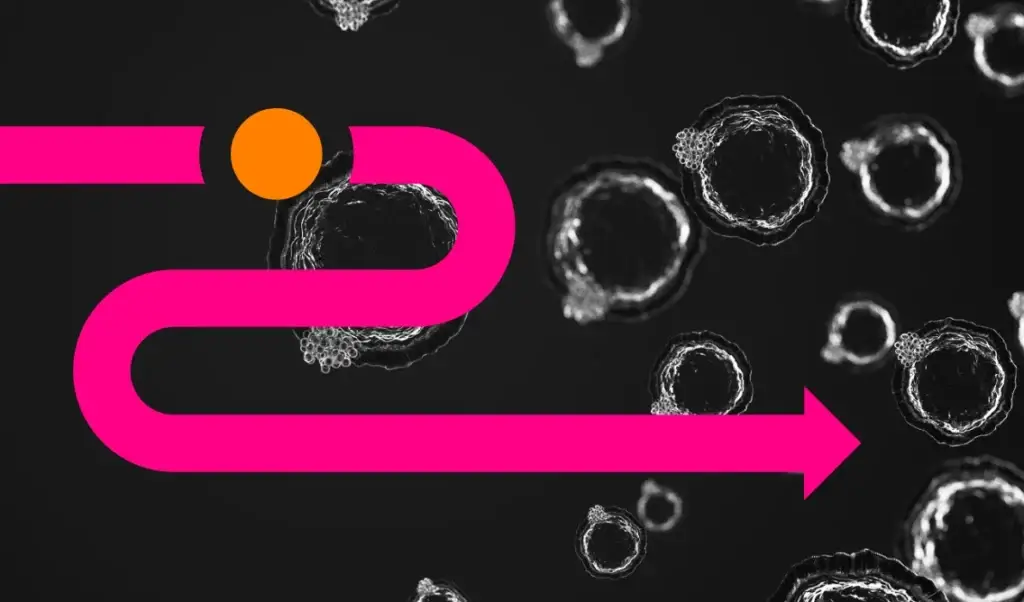Regulatory Review: Unsung FDA approvals for rare disease in the 3rd quarter
Written by:
Date:

The third quarter of 2022 saw a number of highly celebrated new therapeutic approvals. Squarely in the spotlight were Bluebird Bio’s gene therapies for beta-thalassemia and cerebral adrenoleukodystrophy (CALD). Axsome Therapeutics also garnered significant attention for a new treatment for major depressive disorder. All three of these treatments are exciting in their own way, and represent promising advances in medicine.
However, during the same timeframe, there were several wins for rare diseases that went under the radar, though they are no less deserving of celebration. Here, we’ll discuss three rare disease treatments that you may have missed, all of which are the first approved therapies for their indications that the FDA greenlit between July and September.
Xenpozyme
Sometimes referred to as Niemann-Pick disease, acid sphingomyelinase deficienc (ASMD) is a rare progressive genetic disorder associated with a deficiency of the enzyme acid sphingomyelinase. Without this enzyme, the complex lipid sphingomyelin cannot be broken down, and, instead, builds up in the liver, spleen, lungs, and brain. ASMD has a spectrum of disease, with three main types:
- Type A is a fatal neurodegenerative disorder in which the first symptoms occur in early infancy. This type, which is the most severe form of the disease, progresses rapidly and affects many key organs, including the brain.
- Type A/B develops in infancy or early childhood, and may affect the brain, as well as other organs. The progression rate and severity for this type may vary.
- Type B – which is non-neurological and the most common of the three ASMD types – progresses slowly, varies in severity, and can go undiagnosed until adulthood. Type B can affect liver and spleen size, lung function, and platelet and white blood cell count. However, it has little or no impact on the brain.
Genzyme’s Xenpozyme is the first FDA-approved (August 31, 2022) treatment for non-neurological ASMD, or types A/B and B. As an enzyme replacement therapy, it provides an external source of acid sphingomyelinase, and helps to reduce the accumulation of sphingomyelin in the body. In double-blinded, placebo-controlled Phase II/III trials, patients who received Xenpozyme demonstrated an approximate 39 percent decrease in spleen volume, 25 percent decrease in liver volume, and 16 percent increase in platelet count compared to patients who received the placebo.
Those affected by ASMD can find support and resources from the National Niemann-Pick Disease Foundation.
Spevigo
Generalized pustular psoriasis (GPP), distinct from the more common plaque psoriasis, is a rare condition characterized by flares of abnormal inflammation on large areas of skin, including the widespread formation of pustules. This condition can be life threatening, and can be accompanied by fever, fatigue, muscle weakness, and increased white blood cell count. Though GPP has been linked to mutations in the IL36RN gene, the exact cause is unknown in many cases, with risk factors that may include skin infections or sudden withdrawal from steroids.
On September 1, the FDA approved Boehringer Ingelheim’s Spevigo, the first GPP treatment for adults. Spevigo, an IL-36 receptor antagonist, blocks a key part of the signaling pathway linked to GPP. By binding to the IL-36 receptor, it prevents the activation of pro-inflammatory pathways. In a double-blind, placebo-controlled study, 54 percent of patients receiving Spevigo had no visible pustules after one week, compared to 6 percent of patients who received a placebo.
The National Psoriasis Foundation offers resources to those who are impacted by GPP.
Terlivaz
Hepatorenal syndrome is a form of kidney function impairment that occurs in individuals with advanced liver disease. While the exact cause is unknown, it is thought that it may be linked to decreased blood flow in the kidneys. There are two forms: type I, which is rapidly progressive, and leads to renal failure; and type II, which progresses slowly over the course of weeks or months.
Terlivaz, from Mallinckrodt plc, was approved on September 14 to treat hepatorenal syndrome type I. It acts as an analogue for vasopressin, also known as antidiuretic hormone, which, among other things, plays a role in blood pressure regulation, and in the ability of the kidney to absorb water. Terlivaz is thought to increase renal blood flow, thereby improving kidney function. In a double-blind, placebo-controlled study, approximately 29 percent of patients receiving Terlivaz achieved verified hepatorenal syndrome reversal, compared to approximately 16 percent of patients receiving a placebo.
Because it is a complication of liver disease, The American Liver Foundation provides resources for those affected by hepatorenal syndrome.
Looking ahead
While we rightfully celebrate the big-name approvals, we should not overlook how impactful the aforementioned first-approved treatments will be for those with rare diseases. Until relatively recently, many rare and orphan diseases have not received much attention from the pharmaceutical industry. With current incentives, better understanding and improved technology, we can expect to see an increasing number of rare disease therapies that will change many lives for the better.
You may also like
All rights reserved Privacy Policy






